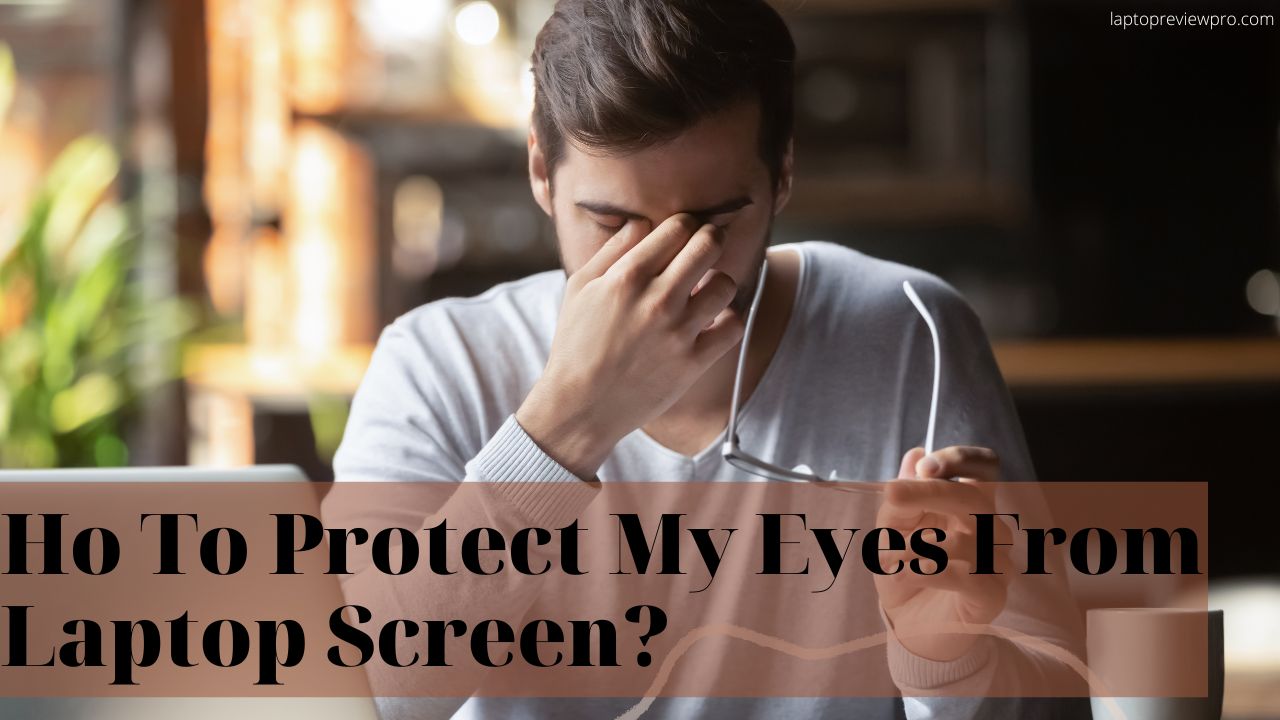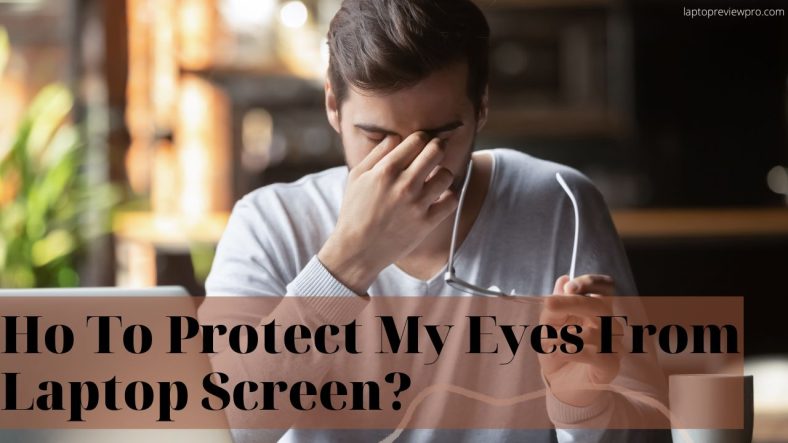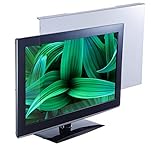Is your laptop screen harmful exposure to your eyes?
Yes, According to a recent study, laptop screens can be harmful to your eyes. Laptop screens emit high levels of blue light, a type of light that can harm your eyes. This type of light is known to cause eye fatigue and problems with sleep.
So, how can you protect yourself from this type of exposure? Here are some tips.
How Can You Protect Your Eyes From Laptop Screen?
How Do Screens Affect Your Eyes?
Your eyes are composed of many different parts, but one of the most critical areas is the macula (or maculae). The macula is where all of your color vision happens. It’s located in the center of your retina, which is a light-sensitive tissue at the back of your eye.
The problem with screens is that they block out some of the light from reaching the macula, so you can’t see as clearly. And if you use a screen for long periods, then it will eventually become too dark for you to see in. They can cause headaches, dry or scratchy eyes, blurry vision, and even eye strain or fatigue. Here’s how:
- Laptop screen time can cause headaches by keeping you from sleeping well (which helps your body recharge). When you need to use the computer or phone for work, it makes concentrating more difficult.
- Laptop screens can dry out your eyes by emitting light, which causes them to absorb more moisture than normal. Your eyes and eyelids may get red and irritated due to this.
• Laptop screen time also makes it hard to see clearly—even if you’re sitting down! That’s because the glare off of the screen is so bright that it distracts us from what we’re trying to look at, So it takes longer for our brains to process what we’re seeing.
Tips To Protect Your Eyes From laptop screen
When you look at a screen, some of the light that hits your retina is absorbed by it instead of letting it through to your eye. This absorption can be harmful over time if not mitigated.

This is why it’s essential to protect your eyes from the glare of staring at a computer screen all day long. Here are some tips on how to do so:
Do not work on a laptop near a window
If you’re in your home office and the sun is shining through your window, you need to cover up that laptop with its own shade/shade cloth/whatever. The sun will make it hard for you to see what’s happening on the screen and make it harder for you to do anything else.
Use proper lighting
The best way to protect your eyes from the glare of a laptop screen is to use proper lighting, which means using an area light instead of an overhead lamp or reading lamp. This can help prevent eye strain and fatigue because it will give you less light than if you were directly looking at an overhead light source.
Use The 20/20/20 Rule
The 20/20/20 rule is a simple guideline that can help you get the most out of your workday. If you look at the screen for 20 minutes, you must look at something at least 20 feet away from you for 20 seconds. The longer you look away from your screen, though, the better! This way, your eyes have a break and can focus more on what’s in front of them.
Use High-Resolution Screens
The higher the resolution of your laptop screen, the more time you’ll spend looking at it—which means more time staring at a screen that’s too bright for your eyes. So if you want to protect your eyes from glare and to overheat, look for a high-resolution screen with an IPS panel or similar technology. Don’t worry about spending more money—this is an investment in your health!
Adjust screen brightness & use night mode
Brightness settings are no joke—they can make or break how comfortable you feel while using your laptop all day long. And if you’re using the lowest possible brightness setting, chances are good that there’s just too much light coming at your eyes (and not enough at night).
To avoid this issue, you should keep the screen at a level that is comfortable for reading and working. At night, you should adjust the screen brightness to a level that makes it easy to see but doesn’t cause eyestrain or headaches.
Night mode reduces glare and improves overall visibility by reducing blue light interference from screens. To use night mode, turn off all other bright lights in your environment, wait 10 seconds for your eyes to adapt, then open up any app or start working on an article as desired.
Take breaks
One of the best ways to protect your eyes from exposure to laptop screens is to take short breaks every few hours. When you’re working on a computer, try switching between different tasks every few minutes or so. This will help keep your eyes fresh and avoid any fatigue.
Also, ensure that your screen’s viewing angle is comfortable for you. Try sticking your chin about an inch off the top of the monitor and look away from the center point when using a laptop for extended periods of time. You can also adjust the screen’s position if it’s uncomfortable for you in these positions.
Using Screen Protectors for Monitors/Laptops
One of the best ways to protect your eyes from laptop screen glare is to use a screen protector. This will help reduce eyestrain and headaches and save you money in the long run because screen protectors usually last longer than regular sunglasses.
Some of the most popular screen protectors are…
- Best for small laptops: Forito Eye Protection Blue Light Blocking & Anti Glare Screen Protector
- Best for brightness: MOSISO Computer Blue Light Blocking Screen Protector Film
- Best for large screens: EYES PC Blue Light Blocking Screen Protector
- Best for a budget: VizoBlueX Anti-Blue Light Filter
- Best with medical backing: Ocushield Anti Blue Light Screen Protector
The Final Words
Protecting your eyes doesn’t have to be a headache anymore. The simple and easy steps discussed above can help eliminate the risks of staring at laptop screens for hours.
Besides, there are also specific ways that you can use while working on these devices to make sure you stay safe from eye damage. For example, if you are doing an intense task and constantly squinting at the screen, try switching to small windows with black borders around them.
These features will enable you to see correctly without straining your eyes too much! Have a happy reading/viewing experience now!





